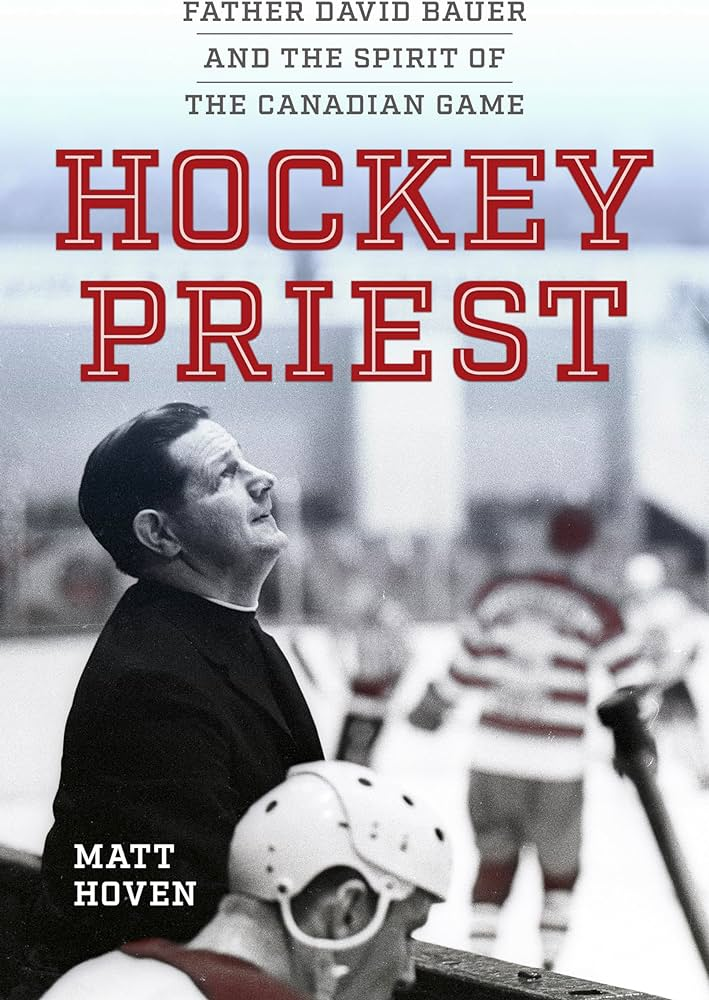YORKTON - If you are a fan of Canadian hockey, and hold an interest in the history of the game in this country then the name of Father David Bauer will be well known to you.
Bauer is the man most generally credited with the creation of a national team program in Canada.
It was in the early 1960s “The Canadian Amateur Hockey Association approved a proposal by Bauer to have a team of Canadian university students combined with senior ice hockey players to represent Canada in ice hockey at the Olympics and at the Ice Hockey World Championships; which was a radical change from the existing practice of the reigning Allan Cup champion team being selected. He established the Canada men’s national ice hockey team program in September 1963, seeking players with athletic and academic morals committed to their studies and training,” details Wikipedia.
The program wasn’t exactly successful -- Canada finished in fourth place based on goal differential at the 1964 Winter Olympics. Bauer would then transition into managing the national team when the program relocated to Winnipeg in 1965, and assembled teams that won the bronze medal at the 1966 and 1967 World Championships, and the 1968 Winter Olympics.
But in spite of golden success eluding him and the team Bauer’s efforts were certainly foundational in terms of a ‘Team Canada’ approach and the many medals that have since followed.
So, it’s rather natural Bauer’s story hold significance, and while other books have been written, the recent Hockey Priest: Father David Bauer and the Spirit of the Canadian Game by Matt Hoven from Catholic University of America Press is certainly one worth delving into.
“Hockey Priest looks past simply understanding Bauer as a do-gooder or hockey innovator,” noted www.cuapress.org
“It shows how he attempted to create a different stream of hockey that could better support youth and so build up the nation. Archival research for the book uncovered Bauer-written hockey reports, speeches, and notes that detail his thinking about the game and his politicking to bring about change in it. Interviews with dozens of associates and family members told the story of his bold efforts to take on the National Hockey League. Despite his work being undermined by some supporters of the corporate game, Bauer offered a vision for Canada’s sport that remains an important counterpoint in the sport’s history and its ongoing challenges.”
In an interview with Yorkton This Week Hoven said he felt the book timely because many questions Bauer asked remain relevant today.
“There’s a lot of questions about what sport is in society,” he said, even though the game of hockey is well-recognized as Canada’s national (winter) sport it too falls under the question.
That however is not exactly a new thing.
Bauer “really grappled with some foundational questions about sport,” said Hoven, adding we are “still grappling with those questions.”
Often the questions are rather basic, for example just what sport and specifically hockey should provide, especially when examining the youth game, said Hoven.
While Hoven recognizes most youth will dream of a pro career that does not happen for most, so what is the broader purpose of youth hockey?
Since Bauer was rather philosophical in his approach, looking at the man through material gleaned from newspaper articles, to private letters to interviews with associates, Hoven said he thinks some insights he had remain relevant.
While Hockey Priest isn’t the answer to the biggest questions which have long faced hockey, Bauer’s visions most certainly remain relevant food for thought, and that makes Hoven’s book well worth a read, because in the end it may make you think about that game so many of us love in a slightly different fashion.





